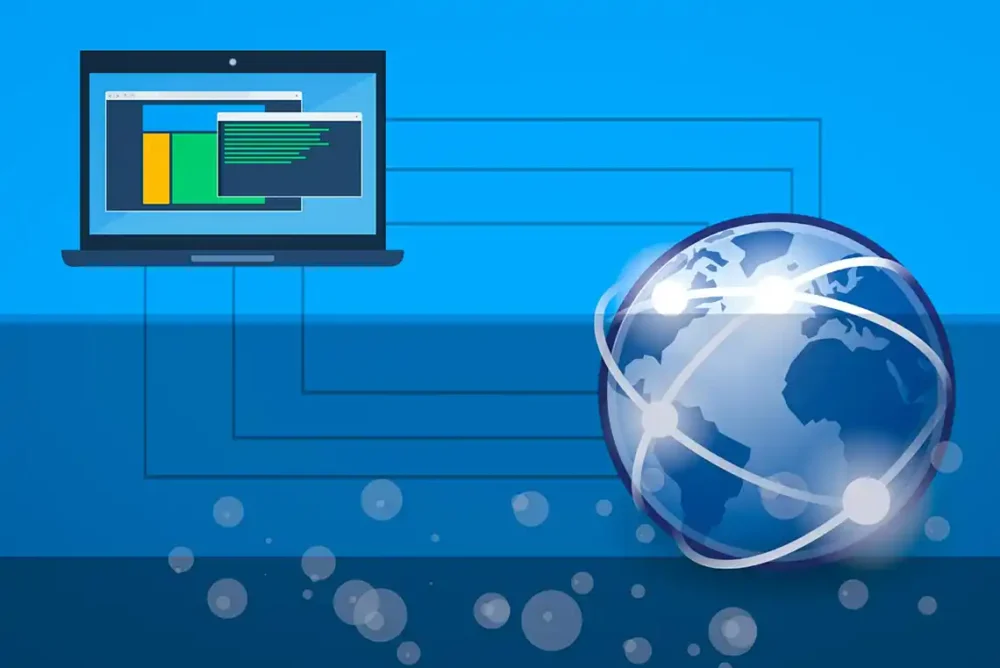
A friend of mine, who is not in the tech industry, recently asked me what an IP address is. So, after explaining the concept of an IP address to my friend, I decided to write an article about it, realizing that others might be wondering the same thing.
An IP address is an integral part of the way in which all devices transmit information across the internet. Whether you’re browsing social media, streaming movies, or sending emails, each device connected to the internet, relies on an IP address to send and receive information. But what exactly is an IP address, and why is it so crucial for digital communication?
What is an IP Address?
At its core, an IP address, also referred to as an “Internet Protocol” address, is simply a unique group of numbers, separated by “dots”, that is given to each device, on a computer network. Its primary function is to identify hosts or networks and provide location information, allowing devices to find and communicate with one another across the internet.
Structure of an IP Address
There are two kinds of IP addresses known as IPv4 and IPv6.
IPv4
IPv4 or Internet Protocol version 4, is arguably the commonly type of IP address utilized. This type of IP address contains four distinct number groups that are divided by “dots”. These numbers are restricted to a range that is between 0 and 255. For example: 192.168.1.5. This format can support about 4.3 billion unique addresses, which, while seemingly large, is inadequate given the explosion of internet-connected devices in recent years.
IPv6
To combat the IPv4 address shortage, IPv6 or Internet Protocol version 6, was developed. It uses a longer format consisting of eight groups of four hexadecimal digits, separated by colons. An example would be 2001:0db8:85a3:0000:0000:8a2e:0370:7334. IPv6 can provide a virtually limitless number of unique addresses, accommodating the growing number of devices and ensuring that we won’t run out of IP addresses any time soon.
How IP Addresses Work
So, in order to connect to the internet, your device must first be assigned an IP address. Your Internet Service Provider or ISP, is responsible for doing this task.
Here are two crucial functions of IP addresses:
Identification
Just as your home address identifies where you live, an IP address identifies your device on the internet, making it possible for other devices to find and communicate with it.
Location Addressing
While an IP address does not give the exact location of a device like GPS, it does indicate the geographical area to which the address belongs, allowing for the routing of information effectively.
When you send a request (for example, typing a website into your browser), your device sends that request to the server associated with the website’s IP address. The server then responds by sending the appropriate data back to your IP address, enabling you to access the content.
Static vs. Dynamic IP Addresses
There are 2 classifications of IP addresses, based on the way in which they are assigned:
Static IP Addresses
These are manually assigned and remain constant over time. Static IPs are often used by servers or other important equipment that requires reliable communication links.
Dynamic IP Addresses
The vast majority of internet connected devices utilize what is referred to as dynamic IP addresses. Dynamic IP addresses are typically assigned by the DHCP (Dynamic Host Configuration Protocol) server. When you reconnect to the internet, your device may be assigned a different IP address, allowing ISPs to manage the distribution of their IP addresses more efficiently.
Why IP Addresses Matter
Understanding IP addresses is essential for several reasons:
Network Administration
In business settings, managing IP addresses is crucial for network configuration, security, and performance.
Geolocation Services
Many online services depend on geolocation data derived from IP addresses. This can influence content delivery, targeted advertising and compliance with regional laws.
Internet Security
Knowledge of IP addresses is vital for cybersecurity as it helps identify potential threats, allowing for proper measures to protect sensitive data.
Troubleshooting
Many common internet issues can be traced back to IP address conflicts, and understanding them allows users to diagnose and resolve connectivity problems.

Website IP Addresses
Devices (smartphones, computers, routers, etc.) that connect to the internet are not the only things that are assigned IP addresses. Websites connected via the internet are also given unique IP addresses, which makes it possible for the public to find such websites.
Website IP addresses can be either shared or dedicated. Shared simply means that there are many (500 or more) websites on a web server, all sharing the same IP address, hence the term “Shared Hosting“. A dedicated IP address is one that is assigned to a dedicated server hosting only a single website. This is often referred to as “Dedicated Hosting”.
Thus, an IP address is not just a series of numbers; rather, it is the essential backbone of digital communication, enabling devices to identify and interact with each other over the vast expanse of the internet. As our reliance on the internet continues to grow, a foundational understanding of IP addresses and their functions becomes increasingly significant for both users, webmasters and administrators alike. Whether for professional or personal use, being informed about IP addresses paves the way for a smoother and more secure online experience.

